Good morning!
Greetings in the name of the Father, the son, and the Holy Spirit.
And Jesus came and said to them, ‘All authority in heaven and on earth has been given to me. (Matthew 28:18)
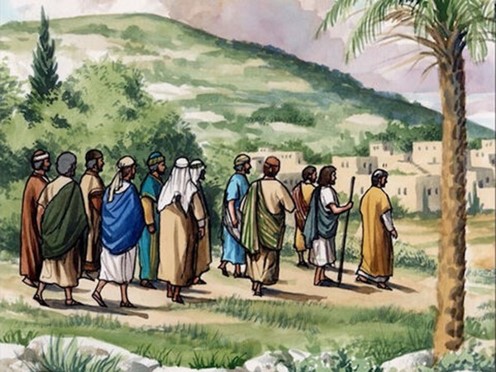
In the closing passages of the Gospel of Matthew, we encounter a pivotal moment where the resurrected Jesus imparts a final, compelling directive to His disciples—a directive that has reverberated through the ages and continues to inspire followers around the globe. Known as the Great Commission, this command is not just a set of instructions but a profound mandate that encapsulates the core mission given not only to those initial followers but to all who claim the name of Christ. Recorded in Matthew 28:16-20, Jesus’ words are a clarion call to His disciples, urging them to embark on a life marked by action, transformation, and unwavering commitment.
This passage stands as a cornerstone for Christian outreach, emphasizing the expansive scope of the mission—to “make disciples of all nations.” This call to global discipleship transcends cultural, geographical, and historical boundaries, making it as relevant today as it was two thousand years ago. It challenges us to look beyond our immediate contexts and consider our role in a broader, dynamic process of spiritual multiplication and nurturing.
As we delve into this profound passage, we are invited to reflect on how this directive influences not only individual lives but also shapes communities and redefines interactions in our increasingly interconnected world. The Great Commission compels us to engage actively in the world, pushing us to transform societies through the power of the Gospel. Let us consider the depth of this call as we explore how it molds our identities, our relationships, and our purpose in the ever-unfolding story of God’s redemptive plan.
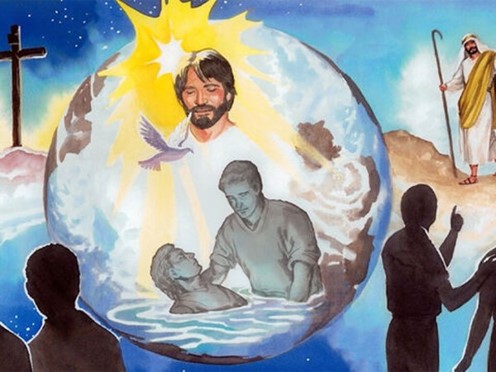
Authority in Christ
The Great Commission, as outlined in the Gospel of Matthew, commences with a profound declaration by Jesus that sets the tone for the mission He entrusts to His disciples: “All authority in heaven and on earth has been given to me” (Matthew 28:18). This bold proclamation is not merely a reassurance but a foundational statement that defines the nature and scope of the disciples’ calling. This assertion of Christ’s complete sovereignty underscores the universal and enduring relevance of the mission He delegates to His followers.
This declaration is pivotal because it establishes that the authority governing the disciples’ mission is divine. Jesus, having conquered death and risen, is affirmed as the sovereign ruler over all creation, both celestial and terrestrial. This universal authority ensures that the disciples are not merely acting on human initiative or limited power. Instead, they are commissioned under the highest authority possible, providing them with a profound sense of purpose and empowerment.
For contemporary believers, this reassurance holds immense significance. When we engage in the mission of making disciples, our efforts are underpinned by the same divine authority. This is not a task undertaken in our own strength or wisdom but is a mission empowered by Christ Himself. The acknowledgment of Jesus’ ultimate authority gives us the confidence to move beyond our comfort zones, to speak and act in ways that can profoundly impact lives and societies.
This divine backing is crucial because it shifts the focus from human capability to divine empowerment. As followers of Christ, we are called to step out in faith, trusting not in our own abilities but in the power vested in us by Jesus. This empowers us to engage boldly with the world, to spread the Gospel across cultural and geographical boundaries, and to effect transformation in varied social contexts.
Moreover, this assurance enables us to confront challenges and opposition with steadfastness and courage. Knowing that “all authority in heaven and on earth” supports our mission can transform our approach to ministry and service. We are not deterred by adversity, because we operate under the highest command, one that transcends all earthly powers and principalities.
This understanding of authority also clarifies our role in the divine plan. We are not independent actors but agents of Christ’s kingdom, called to act in accordance with His will and under His command. This perspective fosters a sense of humility and dependency on God, which is essential for the effective fulfillment of our commission.
In practical terms, Jesus’ authority compels us to act decisively and compassionately in making disciples. It calls us to teach, baptize, and nurture new believers in the faith, just as outlined in the subsequent verses of the Great Commission: “Go therefore and make disciples of all nations, baptizing them in the name of the Father and of the Son and of the Holy Spirit, teaching them to observe all that I have commanded you” (Matthew 28:19-20). Each component of this command is imbued with the authority and power of Jesus, ensuring that our endeavors are not only backed by divine strength but are also integral to the unfolding of God’s redemptive plan for humanity.
Thus, as modern-day disciples, when we internalize the depth of Jesus’ initial declaration, our mission is infused with a renewed vigor and purpose. It reassures us that in every act of teaching, every baptism, and every effort to nurture faith in others, we are participating in a divine narrative that is supported by the ultimate authority. This realization not only empowers us but also challenges us to live up to the high calling of our faith, with the confidence that comes from being commissioned by none other than the risen Christ.
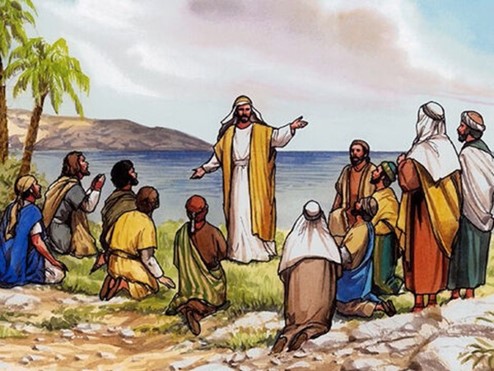
The Mission to Make Disciples
Jesus’ command, as recorded in Matthew 28:19, “Go therefore and make disciples of all nations,” lays the foundation for a mission that transcends mere information dissemination or mere numerical growth of church membership. It encapsulates a call to engage deeply and personally in the lives of others, cultivating transformative relationships through teaching, baptizing, and nurturing new believers in the ways of Christ. This directive from Jesus emphasizes not only the spread of the Gospel but the formation of committed followers who live out the teachings of Jesus in their everyday lives.
The directive to make disciples is global in scope, encompassing “all nations,” which suggests a universal outreach crossing cultural, ethnic, and national boundaries. However, the application of this mission is intensely personal. Each believer is called to reach out to different groups—whether these groups are defined by geographic boundaries or by cultural and social distinctions within their own communities. This broad scope reminds us that the Gospel is for everyone, everywhere, transcending all barriers that might otherwise divide people.
The task of making disciples involves much more than the initial proclamation of the Gospel; it requires a commitment to mentor, teach, and live life alongside those we are helping to grow in their faith. This aspect of discipleship is modeled by Jesus Himself, who spent significant time teaching, guiding, and living in close community with His disciples. His method was relational and holistic, concerned with the full development of His followers in faith, understanding, and practice.
Furthermore, the call to disciple-making is a call to continuous and life-long engagement. It is about walking with new believers through different stages of their spiritual journey, helping them to grow in their understanding of the Scriptures, guiding them in prayer, and encouraging them in the application of biblical principles to life’s challenges. This nurturing process is pivotal in ensuring that faith becomes a defining influence in how individuals live and interact with others.
In addition to teaching and mentoring, baptizing them “in the name of the Father and of the Son and of the Holy Spirit” (Matthew 28:19) signifies the believers’ initiation into the community of faith. Baptism represents a public declaration of faith, a symbolic act of washing away the old life and embracing a new life in Christ. It is a profound communal and transformative act that reinforces the believer’s commitment to Christ and integrates them into the body of Christ.
This comprehensive approach to discipleship requires patience, wisdom, and a deep commitment to the spiritual welfare of others. It demands of us to be both teachers and companions, sharing not only the Gospel but our lives as well. As Paul the Apostle exemplified in his relational approach to ministry, “We were gentle among you, like a nursing mother taking care of her own children. So, being affectionately desirous of you, we were ready to share with you not only the gospel of God but also our own selves, because you had become very dear to us” (1 Thessalonians 2:7-8).
The Great Commission, therefore, is not merely a task to be accomplished—it is a lifestyle to be embraced. It calls each of us to be active participants in God’s redemptive work, engaging in deliberate and thoughtful discipleship. As we commit to this mission, we must embrace the full implications of Jesus’ instructions, recognizing that the true measure of our success is found in the depth and quality of the relationships we foster as we make disciples of all nations.
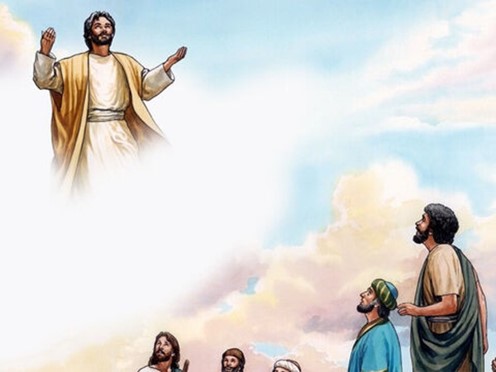
The Promise of Presence
Perhaps the most comforting element of the Great Commission is found in Jesus’ closing promise: “And behold, I am with you always, to the end of the age” (Matthew 28:20). This assurance of Jesus’ perpetual presence is not merely a spiritual sentiment meant to comfort in passing; it is a profound reality that underpins the entire mission of making disciples. It guarantees that as we embark on this commission, we are not left to our own devices but are accompanied by Christ Himself at every step.
This promise from Jesus transforms the potentially daunting task of making disciples into an ongoing journey of companionship with Christ. It reassures us that in our efforts to spread the Gospel and nurture new believers, we are continuously supported by His divine presence. This is crucial because the work of evangelism and discipleship often involves challenges and obstacles that can seem insurmountable. Knowing that Christ is with us can significantly alter our perspective, changing our approach from one of uncertainty to one of empowered confidence.
Furthermore, Jesus’ assurance that He is with us “always, to the end of the age” serves as a cornerstone for our endurance and motivation. It helps us to persevere even when faced with difficulties, knowing that our labors are not in vain and that we are part of a larger, divine narrative that spans time and eternity. This enduring presence of Christ is a source of strength and counsel, providing wisdom and guidance through the Holy Spirit. It reminds us that our missionary and discipleship endeavors are not just human projects but sacred activities that are infused with divine purpose and power.
The reality of Jesus’ promise also sustains us in moments of doubt and personal challenges. In times when our faith wavers or when we feel inadequate for the task at hand, the reminder that Jesus is with us can bring profound comfort and renewal. This promise is akin to the reassurances found throughout Scripture, where God’s presence provides pivotal strength to His people. For instance, just as God assured Joshua, “Do not be frightened, and do not be dismayed, for the Lord your God is with you wherever you go” (Joshua 1:9), so too does Jesus assure us of His unfailing presence.
Additionally, the presence of Christ enriches the relational aspect of discipleship. Knowing that Jesus walks with us allows us to model our relational ministry after His example. As we engage with others, we can impart not only knowledge and religious practices but also the reality of a lived experience with Christ. This modeling can deeply impact those we disciple, as they see a faith lived out in genuine relationship with Jesus.
This enduring promise of Jesus—that He is with us always—is not only meant to comfort but also to compel us forward in action. It serves as a reminder that the work of the Gospel is a shared endeavor between God and us. It challenges us to extend beyond our comfort zones, to reach into the lives of others with the transformative message of the Gospel, and to do so with the assurance that we are never alone.
In sum, this element of the Great Commission is essential as it encapsulates the essence of Christian discipleship: it is a journey not undertaken in isolation but in constant and intimate collaboration with Christ Himself. By holding on to this promise, we are equipped to face whatever may come with the certainty that our efforts are supported and sanctified by His presence, making the lifelong call to make disciples not just a duty but a dynamic engagement with the living Christ.
Summary: Our Lifelong Commission
The Great Commission, as presented in the closing chapter of Matthew’s Gospel, is not merely a directive to be fulfilled—it is a lifelong calling that challenges and reshapes us. This commission beckons us to step out in faith, fully backed by the authority of Christ, and to engage both personally and globally in the sacred task of making disciples. We are called not just to share the Gospel, but to invest deeply in the lives of others, teaching and nurturing them in the path of faith. This is a robust and active engagement that demands dedication and compassion, pushing us to transcend our own limits and to extend Christ’s love to all corners of the world.
As we embrace this mission, we are constantly bolstered by the reassuring presence of Jesus, who promises to be with us “always, to the end of the age” (Matthew 28:20). This assurance is not just a comfort but a powerful enabler, transforming the daunting task of discipleship into a journey of continuous companionship with Christ. It is in this journey that the Great Commission unfolds its full transformative potential—not only impacting those we reach but also profoundly shaping us as individuals.
Committing to the mission of making disciples places us in a dynamic cycle of teaching and being taught, giving and growing, reaching out, and being renewed. As we pour ourselves into others, we find that we too are refined and made anew. Our faith is strengthened, our understanding deepened, and our capacity for love expanded. The act of discipling others becomes a crucible for our own spiritual formation, where we are continually molded by the hands of Christ into more effective instruments of His will.
This calling is profound and transformational, touching every aspect of our lives. It compels us to live out the Gospel in every interaction and to embody the teachings of Jesus in our daily lives. The Great Commission is therefore not just a task to be checked off but a profound calling to embody and extend the kingdom of God. It is a calling that invites us to be active participants in God’s redemptive plan, shaping the world one life at a time, while also being shaped ourselves by the very mission we undertake. As we commit to this lifelong journey, the promise of Christ’s perpetual presence assures us that we are never alone, providing us with the strength and courage to continue our work no matter the challenges we may face.
Heavenly Father, we thank You for entrusting us with the Great Commission. Fill us with the boldness that comes from knowing all authority is Yours. Guide us as we go forth to make disciples of all nations. Let us find joy in the mission and comfort in Your promise to be with us always. May our efforts bear fruit that lasts and bring glory to Your name. Help us to be faithful in this calling, to teach Your ways, and to live out the truths of Your Gospel in every aspect of our lives.
In Jesus’ name, we pray, Amen.
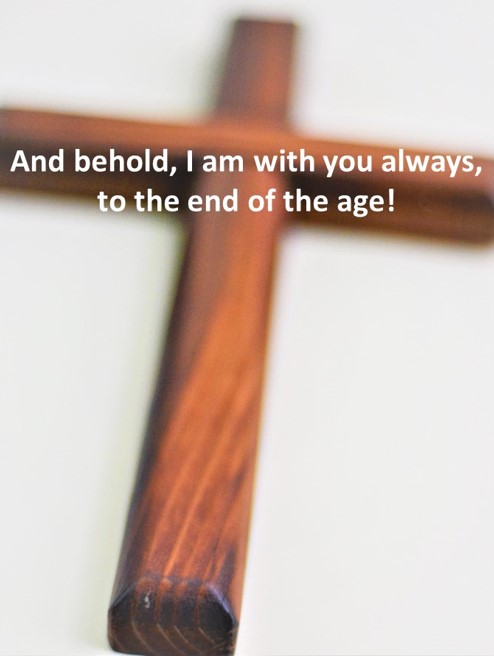
And behold, I am with you always, to the end of the age. (Matthew 28:20b)
